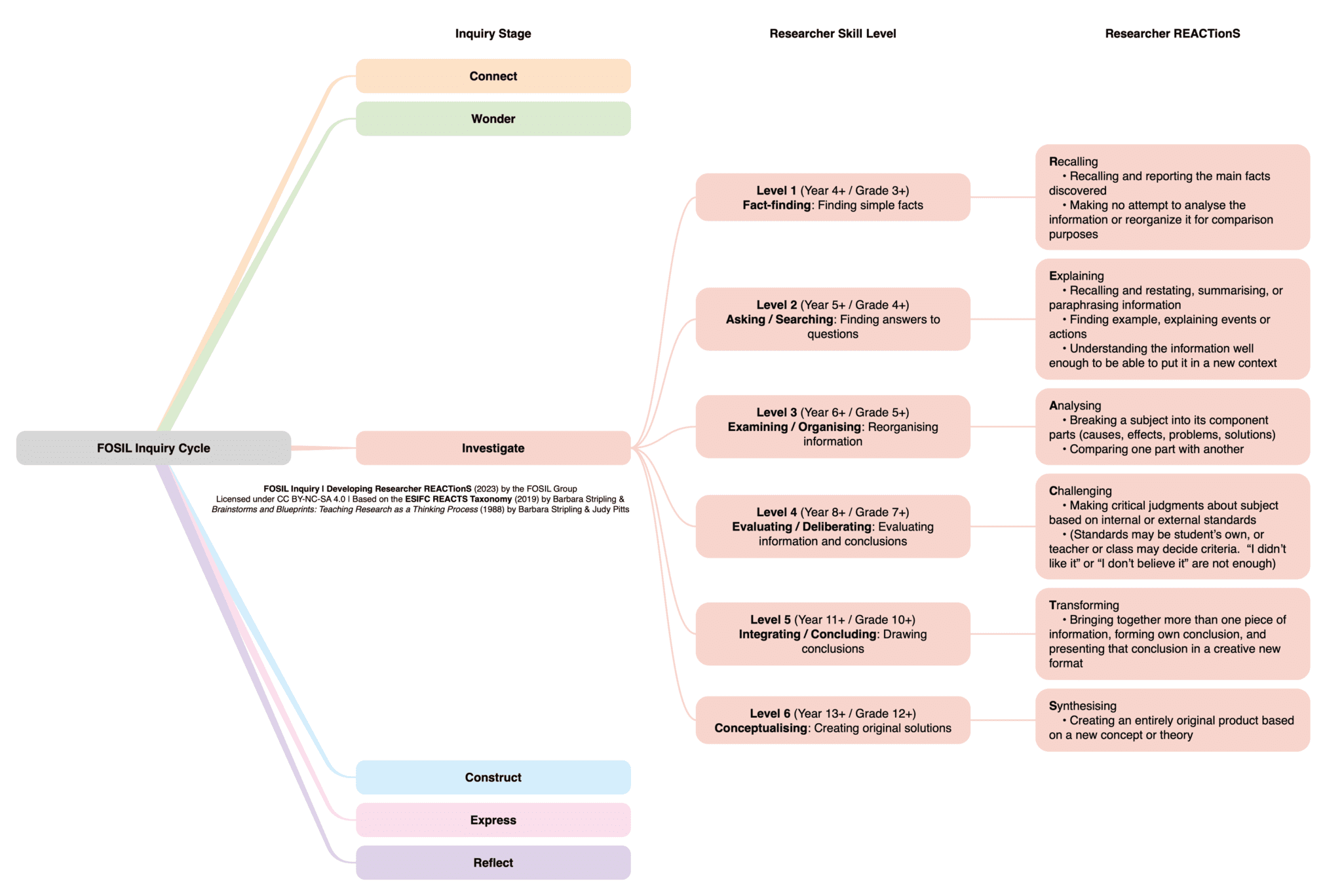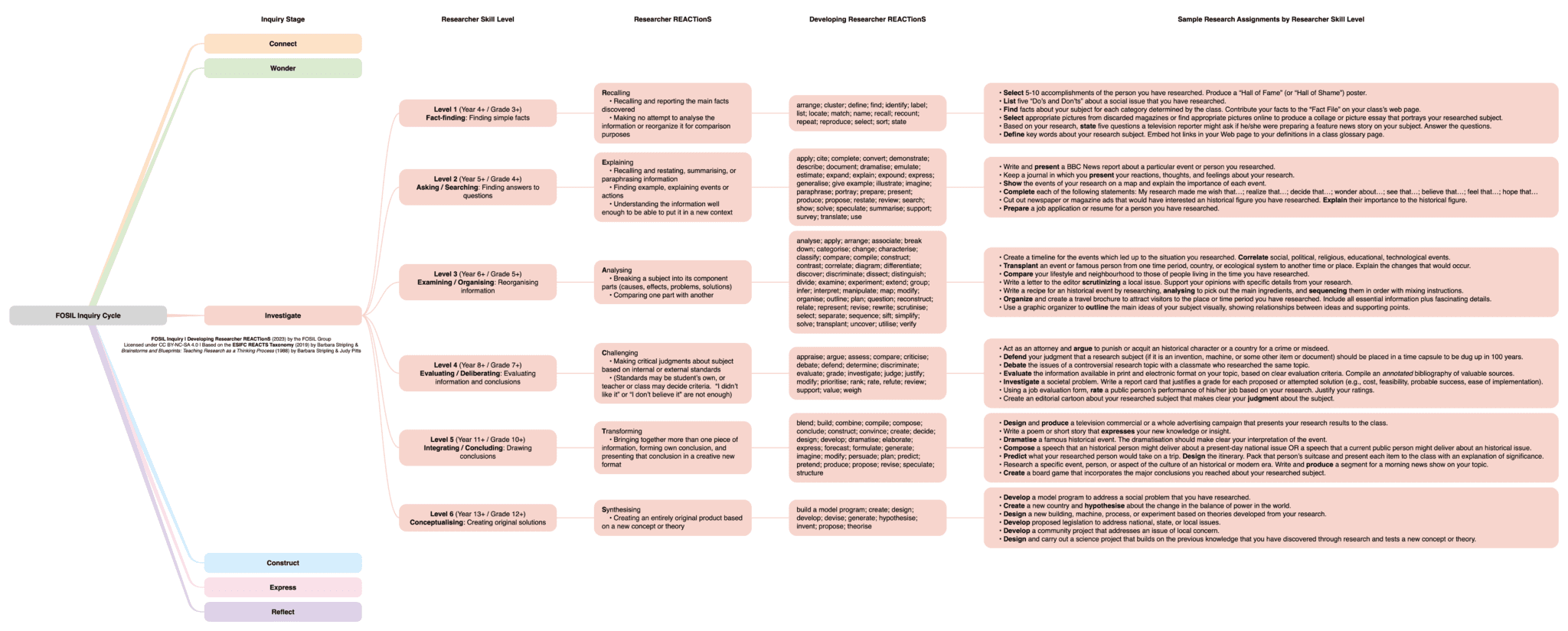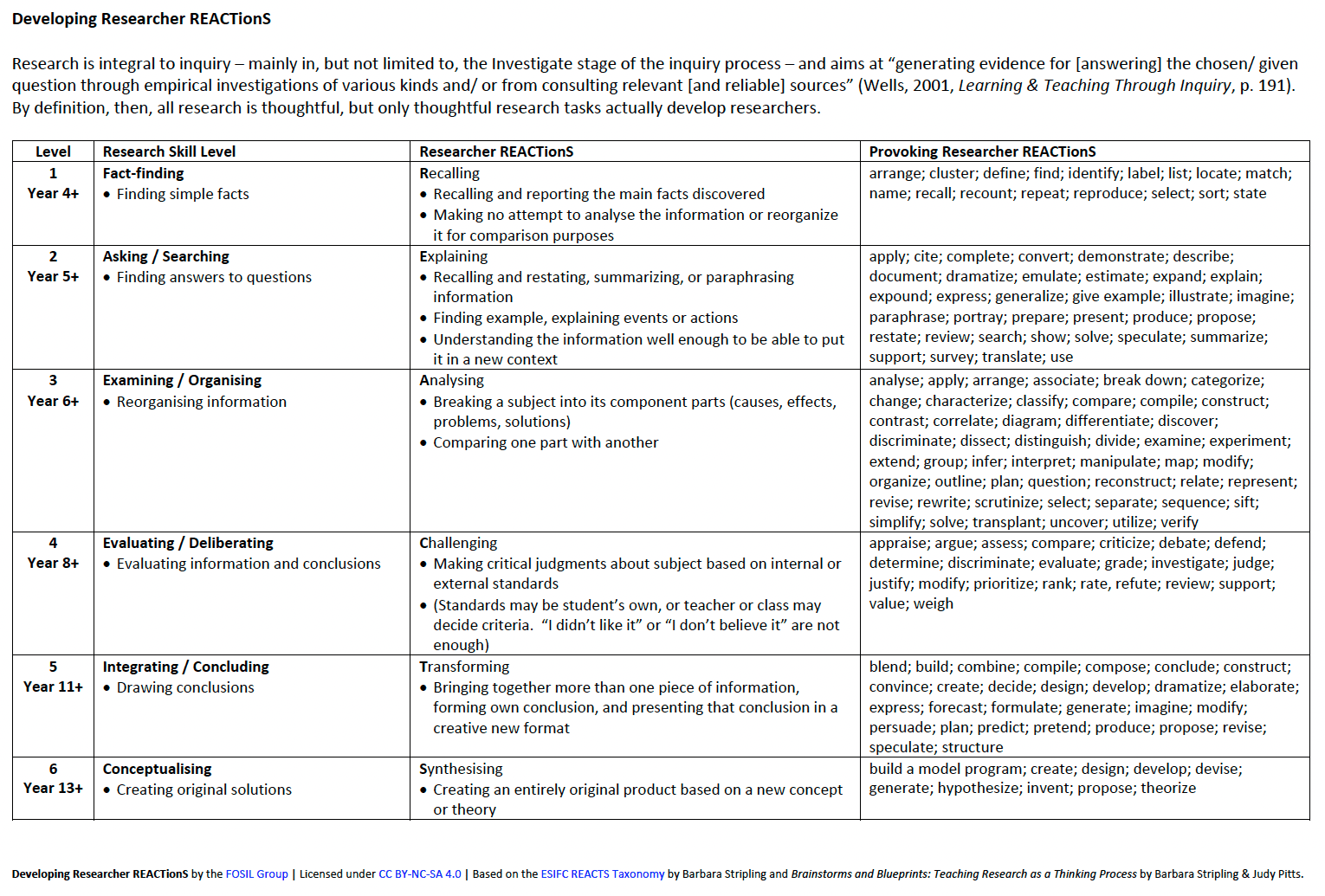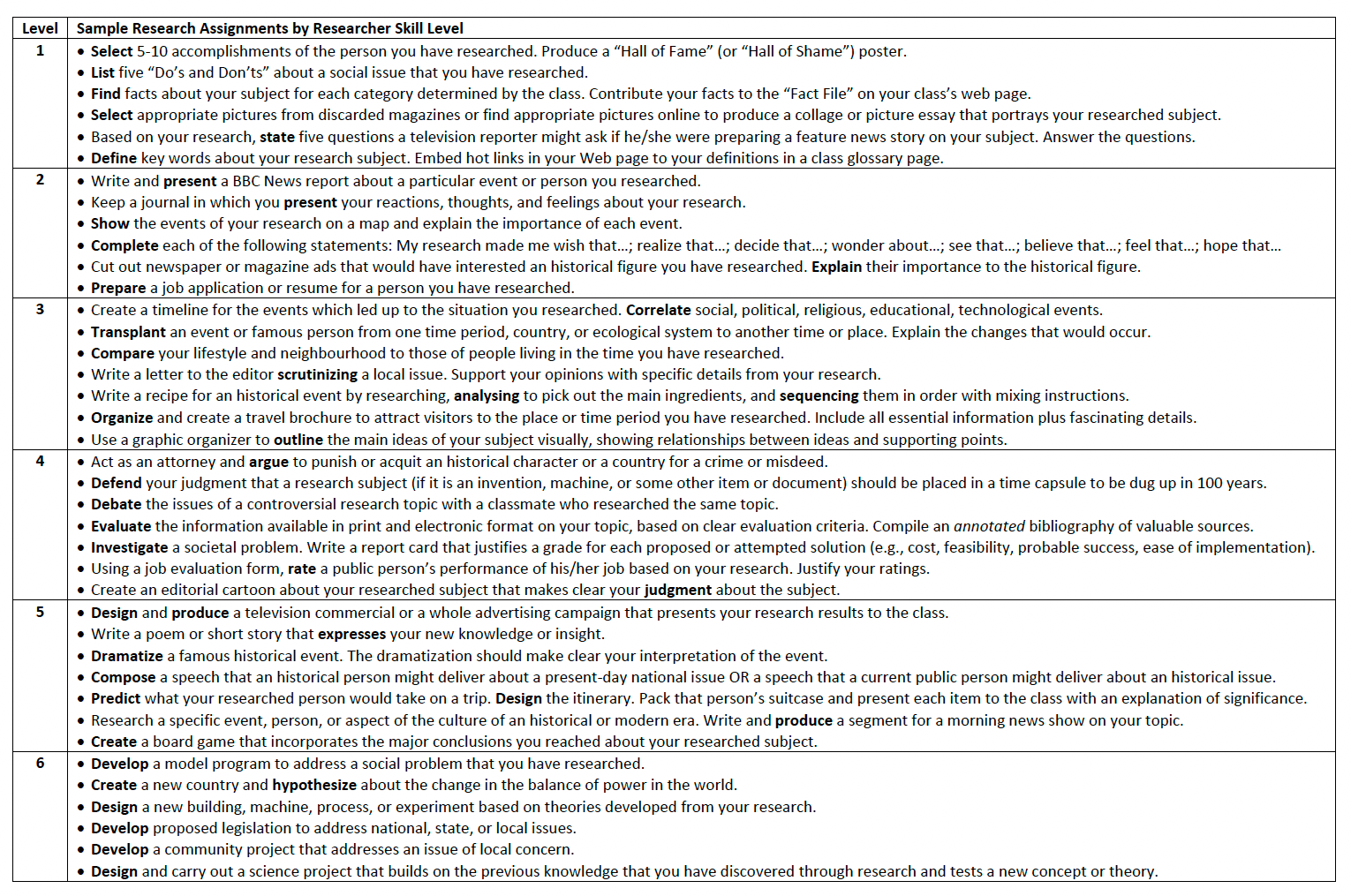Research is integral to inquiry – mainly in, but not limited to, the Investigate stage of the inquiry process – and aims at “generating evidence for [answering] the chosen/ given question through empirical investigations of various kinds and/ or from consulting relevant [and reliable] sources” (Wells, 2001, Learning & Teaching Through Inquiry, p. 191). By definition, then, all research is thoughtful, but only thoughtful research tasks actually develop researchers. And in turn, inquirers.
The following may help to visualise this.
FOSIL Inquiry | Developing Researcher REACTionS (click image to enlarge or download as PNG or A4 PDF)

FOSIL Inquiry | Developing Researcher REACTionS plus Sample Assignments (click image to enlarge or download as PNG or A3 PDF)







